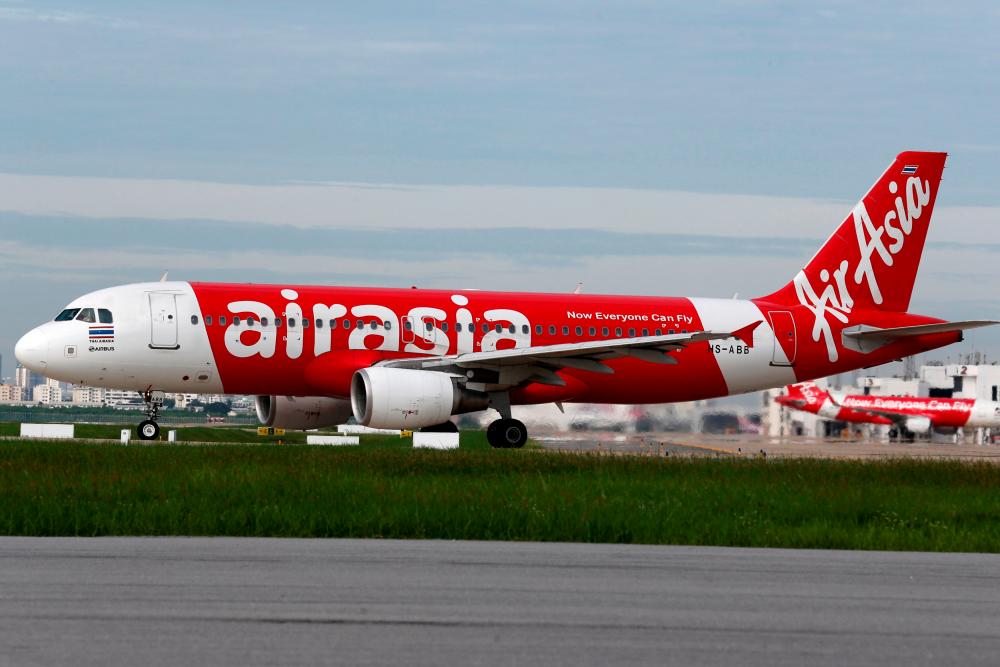PETALING JAYA: AirAsia Group Bhd posted a net loss of RM803.85 million for the first quarter ended March 31, against a net profit of RM96.09 million reported in the same quarter of the previous year attributed to fair value losses on derivatives, loss on settlement of fuel hedges, depreciation and lease liabilities interest.
Revenue for the period declined 15.3% to RM2.31 billion from RM2.73 billion reported previously.
The reduction in available seat kilometre (ASK) by 19% was primarily due to proactive capacity management to mitigate the impact. 1Q’20 ancillary revenue also decreased by 16% year-on-year (yoy) to RM556 million, dragged by airline ancillary which declined 28% mainly due to removal of processing fees and 22% less passengers carried.
Revenue per ASK (RASK) increased by 2% to 15.33 sen in 1Q’20, attributed to a better pricing strategy adopted since 4Q’19, while cost per ASK (CASK) including fuel,increased by 36% to 19.81 sen in 1Q’20. Maintenance and overhaul costs increased by 54% yoy due to the accounting impact from the change in aircraft ownership.
According to the group’s Bursa disclosure, it acknowledged that it has been severely affected by the Covid-19 pandemic, having had to temporarily suspend most of its fleet in late March due to increasing movement restrictions.
From late April onwards, it has gradually resumed domestic travel in several operating countries.
AirAsia stated it is gradually adding frequencies and opening routes in the domestic sector with advice and regulations from government and health authorities.
In regards to the results, its airlines president, Bo Lingam commented that its market position remained strong despite the challenges.
“We are pleased to see domestic market share gain in three of our air operator certificates (AOC)s, the highest being AirAsia Philippines which was up 4 ppts. Malaysia remains our strongest domestic market at 61% market share,” he said in a press release.
“For each of our operating markets, we have restarted operations in phases and are focusing domestically for now, before opening up to Asean and then the rest of Asia when border restrictions are lifted.”
Meanwhile, AirAsia’s CEO, Tan Sri Tony Fernandes conceded that this is the group’s toughest challenge since its inception in 2001.
“We are positive in the strides we have made in bringing cash expenses down by at least 50% this year, and this will make us even stronger as the leading low-cost carrier in the region,” said Fernandes.
For its airline operations, he stated there has been a strong rebound in demand, since resuming operations in late April 2020 and foresees this will continue in the coming months.
The CEO pointed out that the group’s past sale and leaseback deals serve to be beneficial in the current situation, as leasing provides flexibility and room for renegotiating contracts with supportive lessors and suppliers.
“To ensure sufficient working capital during these challenging times, we have sought payment deferrals from our suppliers and lenders,” he said.
“We have also restructured a major portion of the fuel hedges with our supportive counterparties and are still in the process of restructuring the remaining exposure.”
He also revealed that AirAsia have applied for bank loans in its operating countries to shore up liquidity and it has also been presented with proposals to raise capital to strengthen its equity base and/or liquidity from a number of investment bankers, lenders as well as potential investors to help weather the storm caused by the pandemic.















